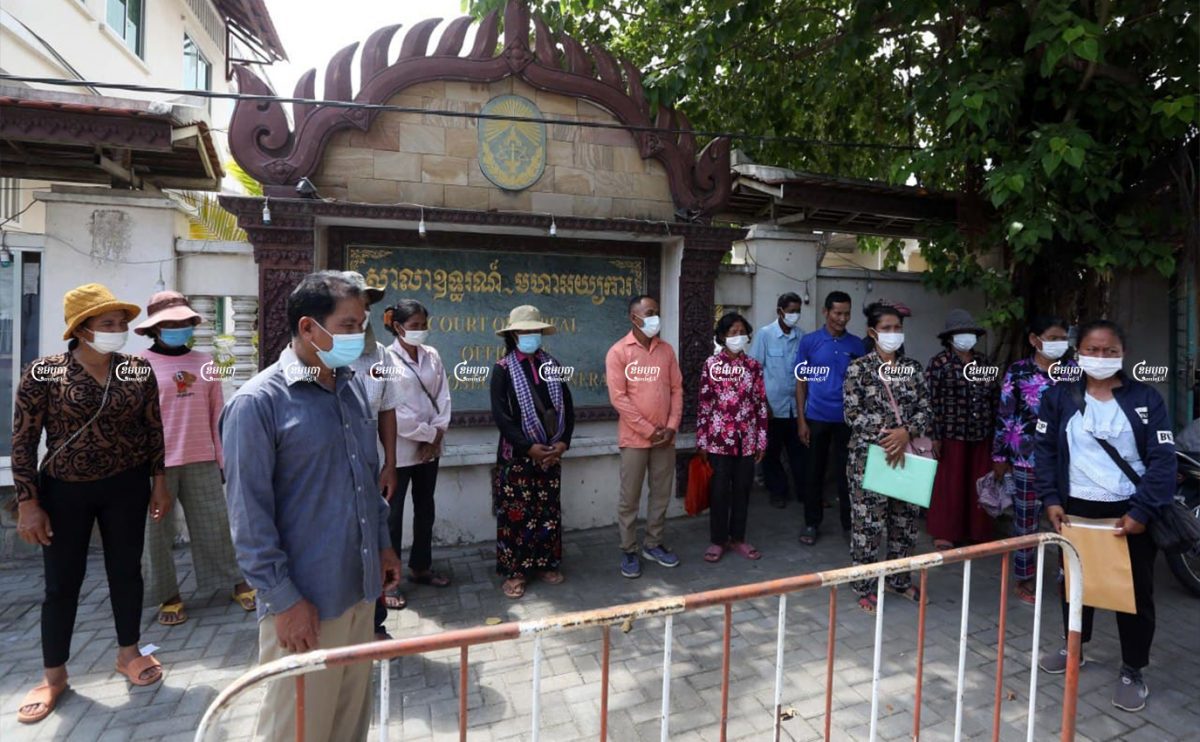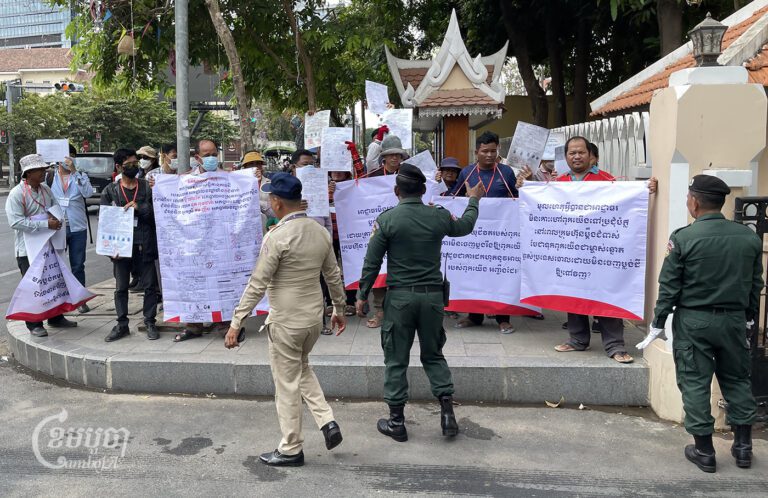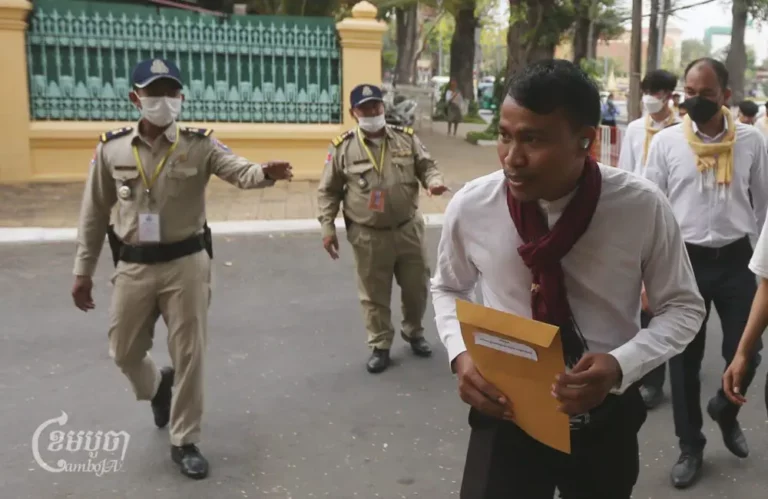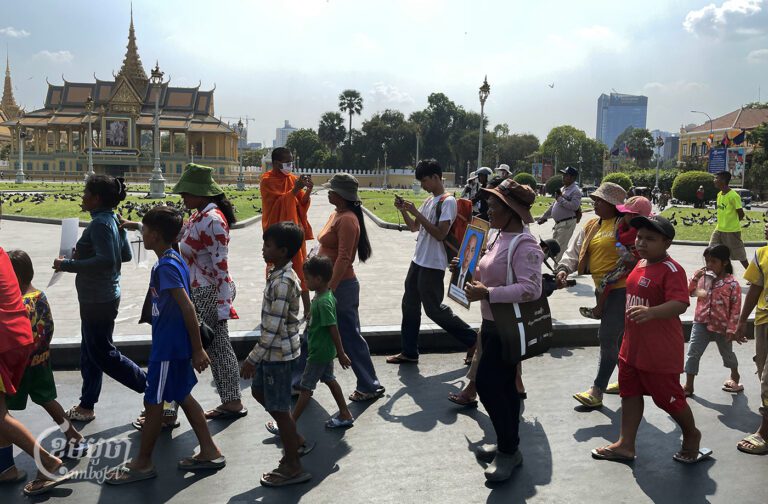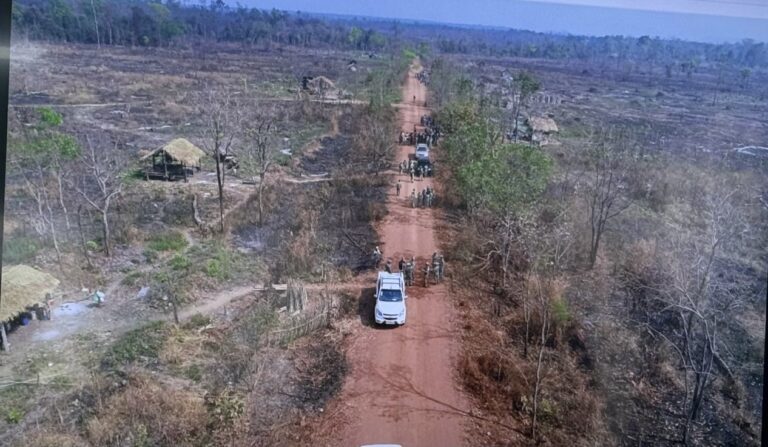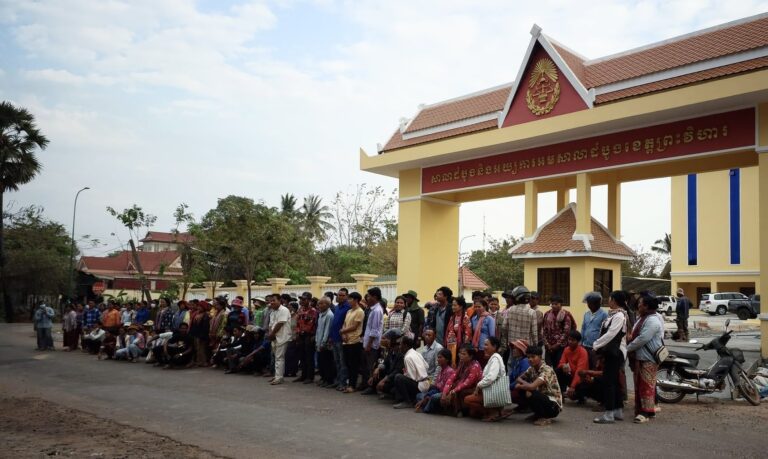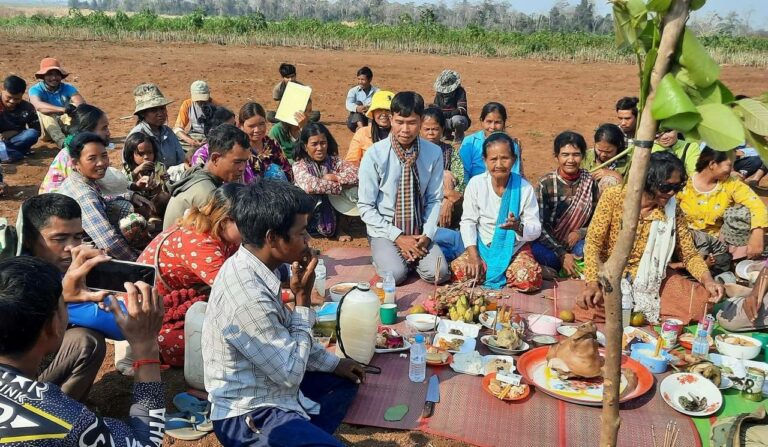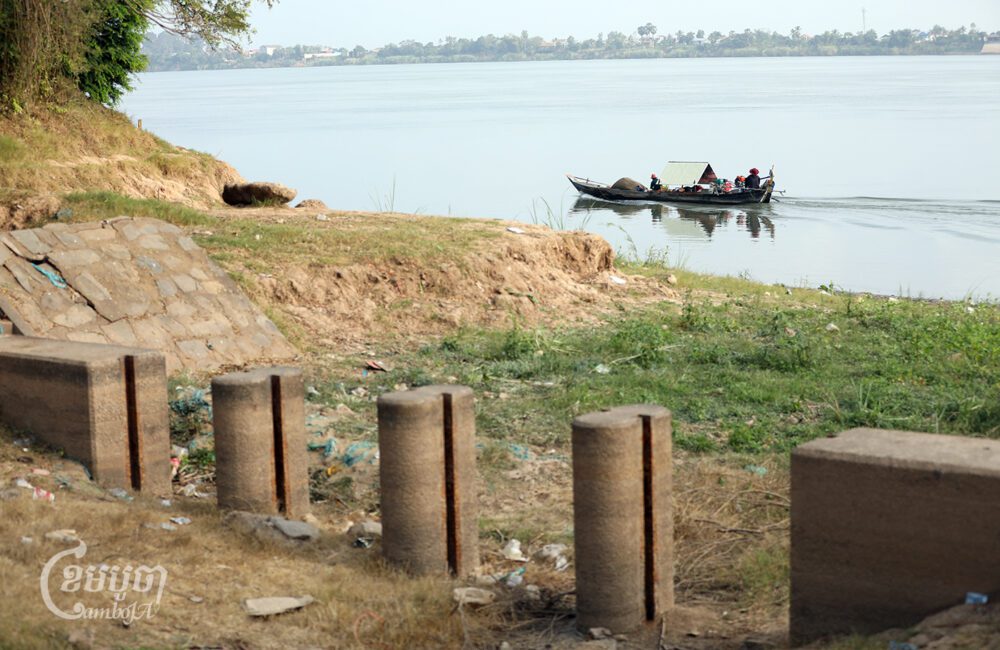Late last month, 20 villagers from Lor Peang community traveled from Kampong Chhnang’s Kampong Tralach district to Phnom Penh to attend an Appeal Court hearing in a case that has dragged on for more than two decades. When they arrived, they learned the hearing would be delayed because one of the three judges is a relative of the company’s lawyer.
The delay was just the latest setback in the land dispute between Lor Peang villagers and KDC — a powerful company owned by Chea Kheng, wife of Minister of Mines and Energy Suy Sem.
Speaking outside the court, activist Oum Sophy, 41, said she felt like such delays were done deliberately to wear down villagers who have been fighting the land dispute since 2000.
“We need to spend 300,000 riel [about 75 $] to rent a car to join the hearing, so when the hearing does not occur, we lose time and money because we are poor,” she said. “I think that when the court decides like this, they seem not to think about the impacts on the poor citizens.”
Several dozen families have yet to settle their dispute with KDC, which they say grabbed about 100 hectares of their land starting in 2000. In 2007, the company was formally given title to 512 hectares — 184 hectares of which was owned by 108 families — and began blocking off access, according to a case study by Focus on the Global South. A year later, police and workers destroyed 14 houses, pushing the residents off their land. Amid threats from the company and fatigue at the fight, the number of families fighting KDC dropped to about 50, according to Sophy. In 2011, 52 families filed complaints with the court demanding the right to occupy their former land, but none have seen any progress yet, said Sophy.
“I just want my land back because farmers want the land to make the farm,” she said. “If they want to provide money to me, I will follow the land market price.”
For Sophy and others, the ongoing dispute has greatly impacted their lives. In 2009, she and her husband fled to Thailand after the court issued a warrant for their arrest — staying for three years. More than 10 villagers, including a village chief, have faced charges, arrests, and jail, as they protest the case and seek fair compensation for their land.
The villagers have been fully blocked from the land since 2014, when KDC used hundreds of workers to build a cement fence surrounding the land. When villagers tried to stop the construction, violence broke out resulting in yet more arrests. Some 35 families then signed compensation agreements, though Sophy maintains they did so amid threats.
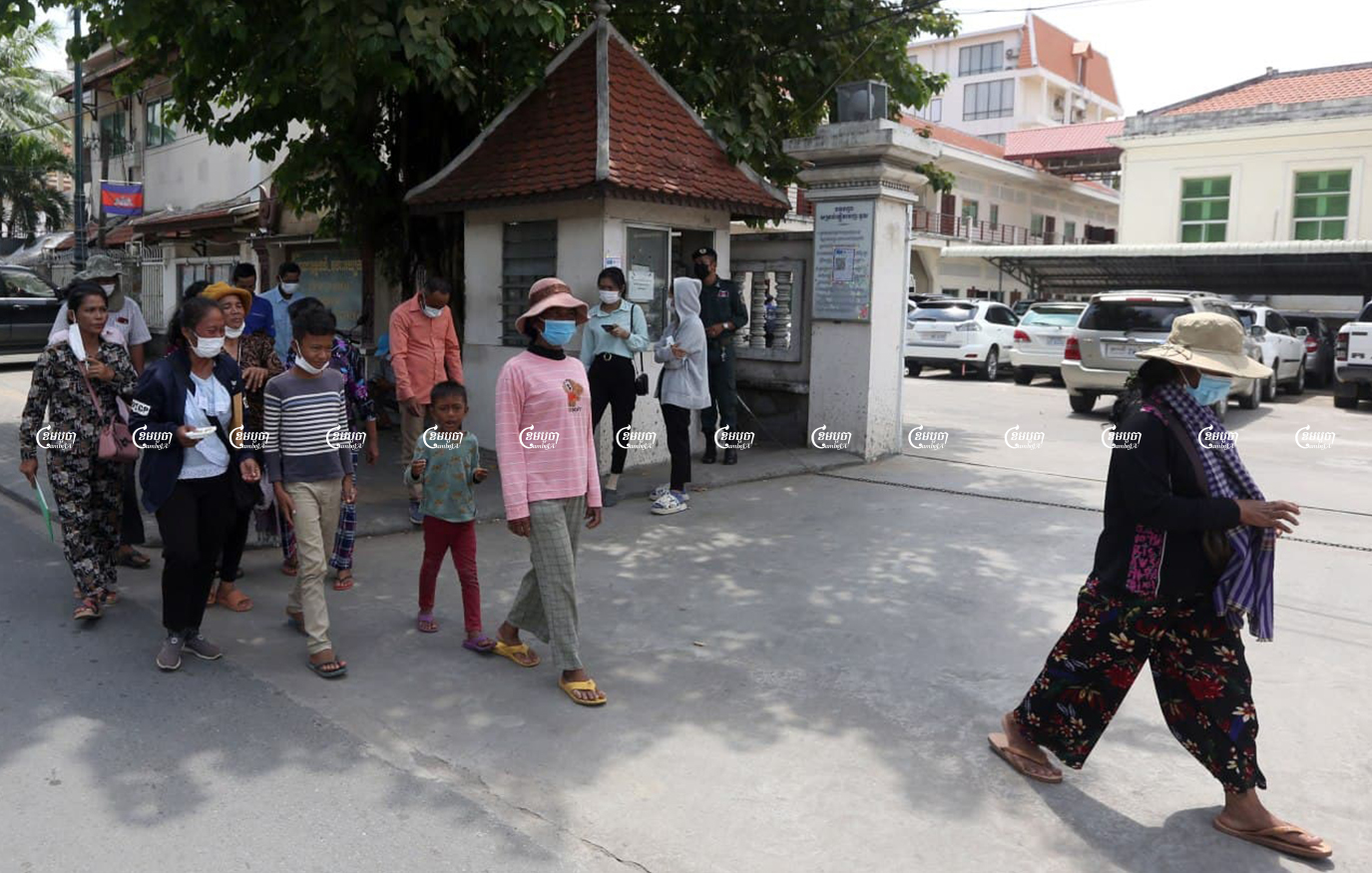
Another villager, Chhit Sokhorn, 60, said that in 2007, her husband was imprisoned for six years after refusing to take a compensation agreement in exchange for the 8 hectares the family had occupied since 1982.
“My husband was imprisoned in three prisons including Kampong Chhnang provincial prison, Prey Sar prison, and Trapaing Phlong prison,” said Sokhorn. “I think that it is very unjust for my family because they arrested my husband to put in jail and they grabbed our land.”
“I request the Queen Mother and the King and Samdech Hun Sen to help solve the land dispute for Lor Peang villagers because we had this land dispute for about 20 years.”
Several villagers note that while they signed compensation agreements, they never received money, while others maintain they were tricked into signing the agreements.
Reach Sima, 40, another villager representative said that he, too, was disappointed by the court’s decision to delay, noting they could have changed the judges before the hearing date.
“We are poor citizens, we do not have money to spend for our transportation to join the hearing many times,” he said.
Sima filed a complaint to annul the contract, saying that he received two compensation checks from the company following negotiations — but when he went to cash him, there was no money.
“I agreed to receive the compensation because the company provided me $20,000… but those checks have no money,” he said.
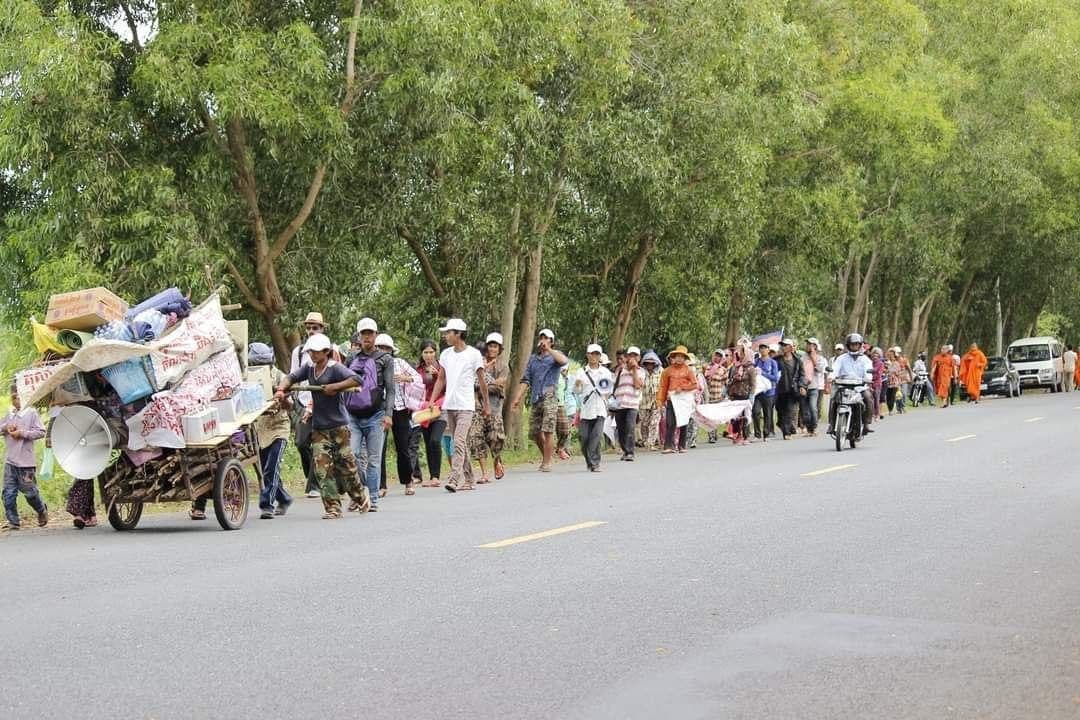
Suon Nhen, 47, another villager said that after her 3.5 hectares was taken, she was invited to a meeting at the Kampong Tralach district office in 2014. There, KDC owner Chea Kheng invited villagers to enter the room one at a time. When Nhen went in, Kheng gave her 6 million riel, telling her to please accept it and making her thumbprint a document that only later she learned was a land sale contract.
“I am illiterate, so I do not understand about principle money,” Nhen said. But “I heard that if I do not take that money, [Chea Kheng] will demand 40 million riel from me, so I was afraid of having to pay her 40 million riel, so I also received the money.”
“Later, we knew that we were cheated by the company, so I filed a complaint to annul the contract,” she said. “Please may the government and court help to find justice for our villagers.”
Svay Sim, chief of Ta Ches commune in Kampong Chhnang province’s Kampong Tralach district, said that the land dispute is still ongoing so she can’t comment on it.
Sun Sovannarith, Kampong Chhnang provincial governor, said that a provincial working group is surveying land disputes across the province and will start reaching resolutions this month.
“Our working group will solve the land dispute for all 71 communes across the province and we do not discriminate against any communes,” Sovannarith said. “I do not guarantee that we can solve all issues but we will try our best to solve them.”
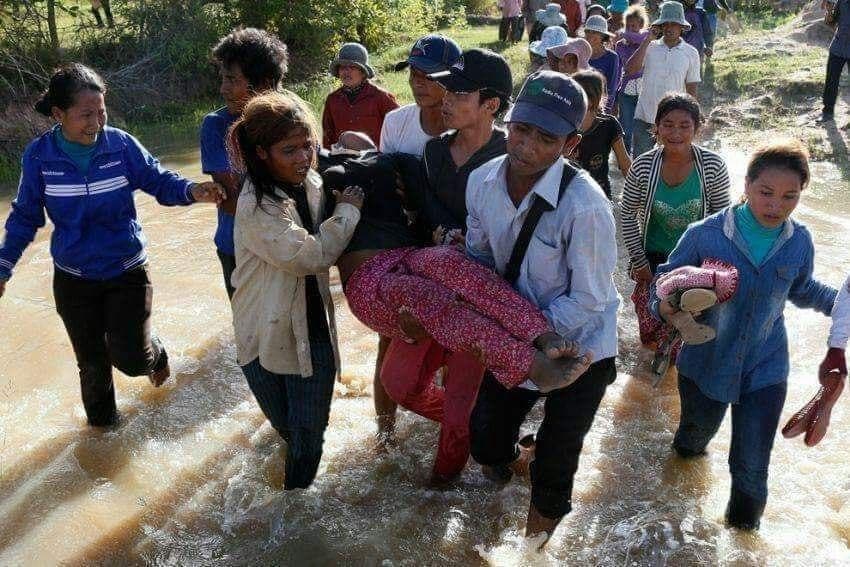
Phat Pouv Seang, the lawyer who represents KDC and who is related to the judge who had to recuse himself from the case declined to comment.
Kong Chanmony, coordinator of human rights group Licadho in Kampong Chhnang province, said that the community has long been seeking a peaceful resolution.
“We always urge the judicial authorities and involved units to find justice for the victims even through the court system,” Chamony said.
He noted that those embroiled in the dispute have grown even poorer during the pandemic, without access to much-needed farmland.
“I hope that the authorities will help to find a resolution for them to help to reduce their poverty,” he said.
For Sophy, she hopes the newly formed provincial working group will find a resolution for their two-decade-long dispute. After the hearing delay announcement last month, she and her neighbors walked from the court to pray at the Preah Ang Dongkeu shrine.
“Because the authorities and court always do not provide justice for villagers,” she said, “I want Preah Ang Dongkeu to help to lobby the court to decide independently and fairly.”


